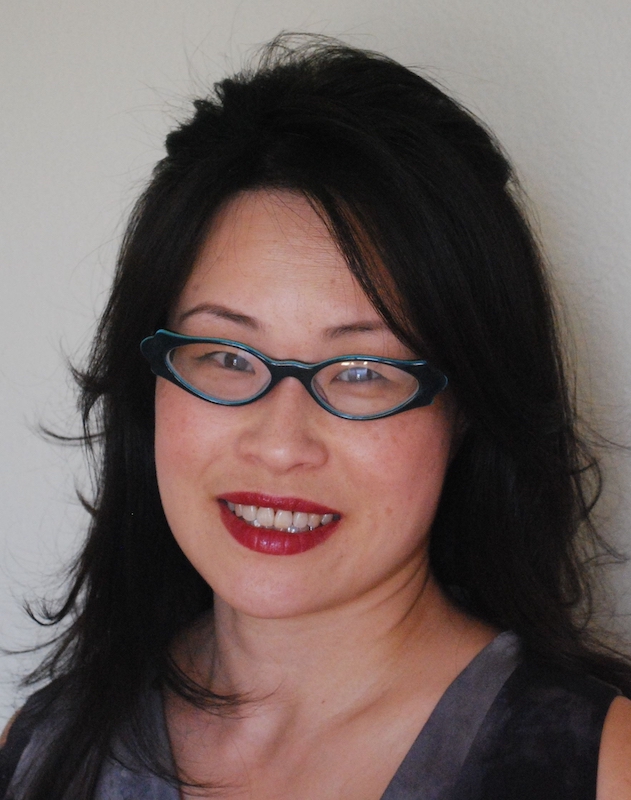Professor Grace Kyungwon Hong holds a joint appointment in UCLA’s Gender Studies and Asian American Studies where she teaches courses on women of color feminism and Asian American culture. Her research focuses on women of color feminism as a critique of, and alternative to, contemporary political and economic policies. She is the author of Death Beyond Disavowal: The Impossible Politics of Difference (University of Minnesota Press, 2015) and The Ruptures of American Capital: Women of Color Feminism and the Cultures of Immigrant Labor (University of Minnesota Press, 2006).
I met with Professor Kyungwon over Zoom to discuss the effects of the COVID-19 pandemic on her scholarly and activist work. Excerpted below are some highlights of our conversation which spanned the importance of improvisation, the speculative, prison abolition, and radical politics of care during this time.
Samuel Teets: One of my favorite arguments from your latest book project, Death Beyond Disavowal, describes how women of color feminism holds seemingly contradictory, “impossible” goals. On the one hand, as Audre Lorde writes, it’s about survival in situations “we were never meant to survive.” At the same time, you argue, women of color activism has always been about advocating for people different from ourselves even when it does not make political sense to do so. This impossible politics of difference is about reimagining ways of being together that don’t have to put someone else down in order to build someone else up. This work feels even more difficult and even more important to me in our present political moment. Could you discuss how you are thinking about impossible politics these days?
Grace Hong: More recently, I’ve been thinking about abolition as a kind of speculative and inherently contradictory goal. Abolition is a politics that’s both about the activist content, but also about an intellectual practice. Abolitionist work is simultaneously working under constraints – the proliferation of prisons, the culture of punishment, enclosure and surveillance – asking ourselves, how do we concretely try to mitigate these constraints and get people out of prison? At the same time, how do we try to not just be constrained to the way the world is now? How do we completely reenvision what it would mean for us to relate to each other differently not based on ideas of consequences for individual actions, but based on care? It’s sort of this whole conversation on reformist reform versus abolitionist reform. There’s this tension between getting people out of prison, which is definitely abolitionist, but having to do so in ways that really replicate a lot of the violence. It’s a constant challenge: this sense of the deployment of irreconcilable contradictions and letting them just be as opposed to getting them resolved one way or another. Abolition is a speculative project in the same way that improvisation is a speculative project.
Reimagining my own professional and activist responsibilities in the midst of the pandemic is kind of the same (while, of course, many things have changed.) If anything, what’s impressed upon me is the increased necessity for practices of care and social reproduction. Not being able to see people in person makes thinking about care really hard!

ST: Could you speak more to what you mean by practices of care? Do you have any routines or rituals of care that help you remain engaged in your work, especially when we’re not able to really see people in person?
GH: I’ve been working to think about radical understandings of care that don’t necessarily have to come out of existing understandings of care that valorize, for example, white motherhood. Forms of care work and social reproduction that don’t get recognized as such.
The biggest act of care, the primary thing I have done for myself to keep my mental health robust, has been to really lower my expectations of myself [laughs]. I don’t know if that’s exactly a ritual or a routine, but in some ways it is: the routinization of not beating yourself up for not doing A, B, and C. And at the beginning of the pandemic, I decided that’s what I was going to do for everyone around me, my grad students, my undergrads, my classes. Most of my students – folks of color, women, non-binary or trans folks of color, queer folks – are people who already feel a deep sense of having to catch up or prove themselves in academic contexts. My job is to tell them to chill, they are doing great, to not beat themselves up for not doing A, B, and C. That’s the kind of relationship to punishment that we all have. If we aren’t productive, and if we don’t hit certain kinds of goals, then it’s like we’re not worthy as people. That’s a punishment framework.
ST: The intimacy and politics of care that goes into reframing how we feel about ourselves or what we’ve accomplished despite the physical distance that separates us, that feels like an improvisation in teaching. It also reminds me of your writing on how the university’s over-emphasis on “excellence” implicitly disavows other practices of knowledge and feeling.
GH: Right. The pandemic has been really isolating in certain ways, but it’s also enabled different kinds of connections, relationships, and rethinking about how to do this. I see all sorts of people around me come up with some amazing projects, actions, and things they’re throwing themselves into. It’s been a really active period, but not in the ways I was seeing before.
Some former students of mine in Asian American studies, for example, started a chapter of Koreatown for All in Westwood called Westwood for All where they do mutual-aid based organizing around unhoused populations in Westwood. It’s been amazing to see people be so resilient and adaptable.
